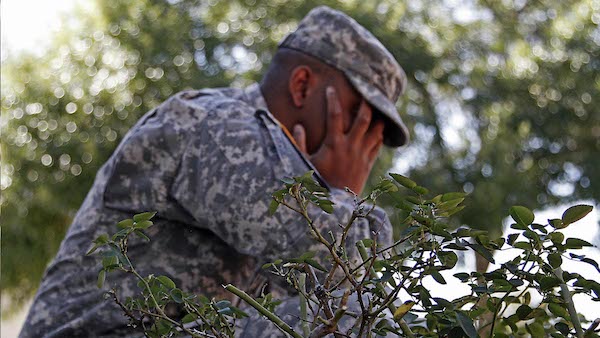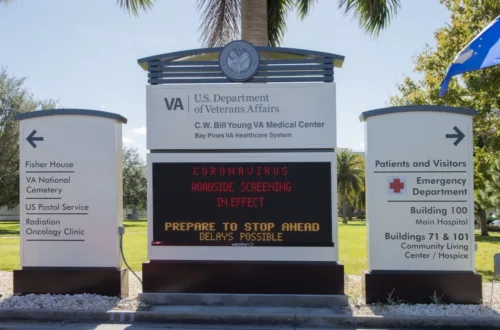September Is Suicide Prevention Awareness Month

National Suicide Prevention Awareness Month
Suicide is the 11th leading cause of death among Americans and the second leading cause of death in the military. An average of 20 veterans die by suicide each day. Unlike many other leading causes of death, suicide is preventable. Alarmingly, the U.S. Centers for Disease Control and Prevention (CDC) reports that the rate of suicide has spiked by 35% since 1999, and it’s still on the rise.
Ignoring this crisis won’t make it go away, yet many people view suicide as a taboo subject. That’s why National Suicide Prevention Awareness Month was created. This month-long observance is a unifying effort among mental health advocates, suicide prevention organizations, suicide attempt survivors, and people like you.
Someone once said, “The person who completes suicide, dies once. Those left behind die a thousand deaths, trying to relive those terrible moments and understand… why?”
In reality, many people have had suicidal thoughts at some point in their lives. Feeling suicidal doesn’t mean a person is weak, flawed, or beyond hope. It means they’re in more pain than they can handle alone. The good news is that there is help available.
If someone you care about is suffering from an invisible level of agony, they may not directly seek help. That’s why it’s important to know the risk factors and indicators as well as how to help and intervene. Preventing suicide isn’t just about caring. It’s about caring enough.
Risk Factors
- Having previously attempted suicide
- Mental or mood disorders
- Family history of suicide
- Recent crisis
Possible Indicators of Suicide
- Talking about death or suicide
- Calling old friends, particularly military friends, to say goodbye
- Cleaning a weapon that they may have as a souvenir
- Anxiety, agitation, rage, anger, or mood swings
- Sleeping far too much, or far too little
- Increasing alcohol or drug use
- Withdrawing from family and friends
- Talking about being a burden to others
- Going on a spending spree to buy gifts for family members and friends
How to Help and Intervene
- ASK. If you’re with someone in a state you think is suicidal, stay calm. It’s recommended you ask the question directly, “Are you thinking of killing yourself?”
- TAKE CONTROL. Calmly and gently remove any means that could be used for self-injury.
- LISTEN. Without offering advice or passing judgment. Just. Listen.
- SUPPORT. Let the person know you care and that you take their situation seriously.
- ESCORT. Never leave a suicidal person alone. Escort them to a chaplain, behavioral health professional, or primary care provider.
This bears repeating: No matter what you do, don’t leave that person alone.
If you’re reading this for yourself and not a loved one, hear this loud and clear: “Place your hand over your heart. Can you feel it? That’s called purpose. You’re alive for a reason. Don’t give up.”
>> Need help right now? Call The Military Crisis Line at 1-800-273-8255, Press 1.
They’re available 24/7/365
Additional Emergency Services:
The National Suicide Prevention/Military and Veteran Lifeline: offers free and confidential support to service members in crisis or anyone who knows a service member who is. The service is staffed by caring, qualified responders from the U.S. Department of Veterans Affairs (VA), many who have served in the military themselves.
Veterans Crisis Line: offers support through the crisis line, online chat, and text-messaging services for all service members (active, National Guard and Reserve) and veterans 24/7/365.
RELATED:
- A Meaningful Step Toward Veteran Suicide Prevention
- Suicide Prevention Resources For Military & Veterans
- Man’s Best Friend Versus PTSD
- Mental Health & Resilience Resources For Veterans
- National Guard Suicides Highest in Active Military
- VA Suicide Prevention Grants
About the author
Julie Provost is a freelance writer, and blogger. She lives in Tennessee with her National Guard husband and three boys.


